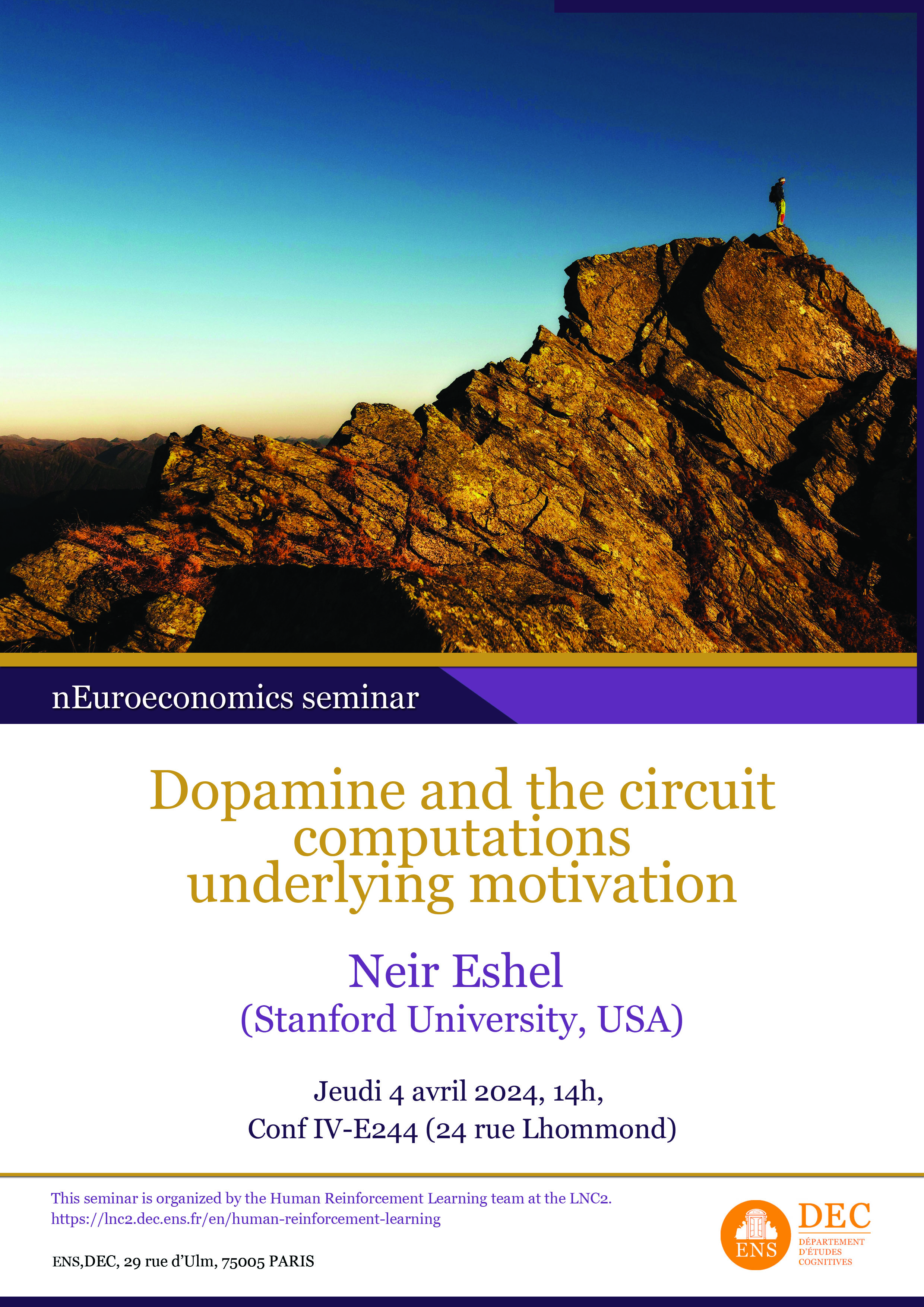Best Poster Awards



Abstract: Reinforcement learning (RL) encompasses different applications in machine learning, psychology, and neuroscience, emerging from the combination of animal learning theories and mathematical algorithms. It is a great tool to study decision-making and explore inter-groups differences. In this work, we use RL modeling to investigate decision making biases that take place at different stages of decision-making and that are expressed in various ways depending on the population.
The happiness of individuals is an important metric for societies, but we know relatively little about how daily life events are aggregated into subjective feelings. We show that happiness depends on the history of expectations and prediction errors resulting from those expectations, a result we have now replicated in thousands of individuals using smartphone-based data collection (https://happinessquest.app). Using fMRI, we show how happiness relates to neural activity and to the neuromodulator dopamine.
 Motivation–the energizing of behavior in pursuit of a goal–is central to daily life. Disruptions in motivation underpin multiple neuropsychiatric disorders, from abnormally low motivation in anhedonia to abnormally high motivation in addiction. Although dopamine (DA) release has long been implicated in motivated behavior, the mechanisms of that link remain unclear.
Motivation–the energizing of behavior in pursuit of a goal–is central to daily life. Disruptions in motivation underpin multiple neuropsychiatric disorders, from abnormally low motivation in anhedonia to abnormally high motivation in addiction. Although dopamine (DA) release has long been implicated in motivated behavior, the mechanisms of that link remain unclear.